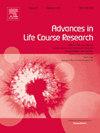Reproductive waithood: An exploratory cohort study of changes in the transition to motherhood in Chile
IF 3.4
2区 社会学
Q1 Medicine
引用次数: 0
Abstract
Waithood is a growing global phenomenon as more women are delaying childbearing and becoming mothers later in life. However, little is known about changes in the transition to motherhood beyond the Global North. Drawing on 40 life story interviews with four cohorts of women in Chile, this qualitative study explores how waithood is emerging as a social norm in connection to changes in the nature, timing, and sequence of motherhood amidst macro-structural transformations in recent decades. We find that waiting to have children is both intentional, as women prioritize education and work milestones, and unintentional, as women face multiple difficulties to become mothers in highly precarious and uncertain contexts. While reproductive waithood is associated to self-realization, increasing readiness for childbearing, and advantages for good mothering, it is also a coping strategy to navigate the transition to motherhood amidst excessive childrearing costs, economic instability, limited social protection, and material hardship. Our findings also suggest that while reproductive waithood is apparent among upper and middle class women, it is also emerging among lower class women as a strategy to avoid the negative effects of early pregnancy on their trajectories of social mobility, navigate the precarious conditions of the labor market, and secure a good upbringing for their children. Overall, these findings contribute to recent scholarship addressing waithood in family formation and delayed adulthood in the Global South.
生殖等待期:智利向母性过渡变化的探索性队列研究
随着越来越多的女性推迟生育,晚育成为母亲,等待期成为一种日益增长的全球现象。然而,在全球北方以外,人们对向母亲过渡的变化知之甚少。通过对智利四组妇女的40个生活故事的访谈,本定性研究探讨了在近几十年的宏观结构转型中,等待期如何在性质、时间和母性顺序的变化中成为一种社会规范。我们发现,等待生孩子既是有意的,因为女性优先考虑教育和工作里程碑,也是无意的,因为女性在高度不稳定和不确定的环境中面临着成为母亲的多重困难。虽然生育等待期与自我实现、提高生育准备程度和获得良好的育儿优势有关,但它也是在育儿成本过高、经济不稳定、社会保护有限和物质困难的情况下过渡到母亲身份的一种应对策略。我们的研究结果还表明,虽然生育等待期在上层和中产阶级女性中很明显,但它也出现在下层女性中,作为一种策略,以避免早孕对她们社会流动轨迹的负面影响,在不稳定的劳动力市场环境中航行,并确保她们的孩子得到良好的教育。总的来说,这些发现有助于最近解决全球南方家庭形成和成年延迟的等待期的奖学金。
本文章由计算机程序翻译,如有差异,请以英文原文为准。
求助全文
约1分钟内获得全文
求助全文
来源期刊

Advances in Life Course Research
SOCIAL SCIENCES, INTERDISCIPLINARY-
CiteScore
6.10
自引率
2.90%
发文量
41
期刊介绍:
Advances in Life Course Research publishes articles dealing with various aspects of the human life course. Seeing life course research as an essentially interdisciplinary field of study, it invites and welcomes contributions from anthropology, biosocial science, demography, epidemiology and statistics, gerontology, economics, management and organisation science, policy studies, psychology, research methodology and sociology. Original empirical analyses, theoretical contributions, methodological studies and reviews accessible to a broad set of readers are welcome.
 求助内容:
求助内容: 应助结果提醒方式:
应助结果提醒方式:


